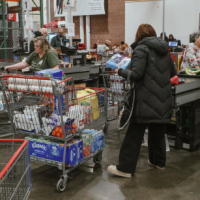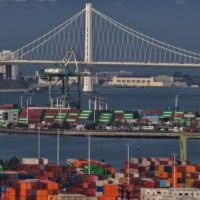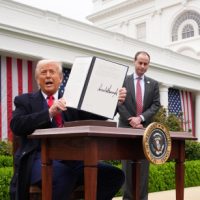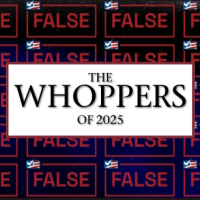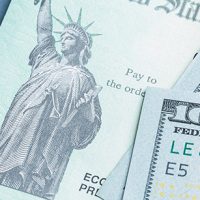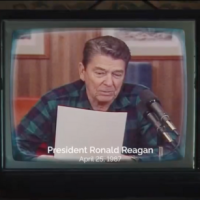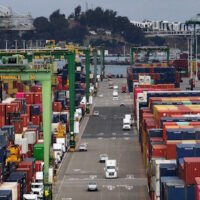In the second and third quarters of 2025, the U.S. economy grew at its fastest pace in two years. Those growth rates were not “numbers unheard of,” or figures the U.S. “never had” before, as President Donald Trump has claimed.
Issues: tariffs
Trump’s Selective Comparison Overstates Trade Deficit Decline
Through President Donald Trump’s first full 10 months in office, the cumulative U.S. trade deficit in goods and services was down 3.9% from the same period in 2024. His claim that he has “slashed our trade deficit by 77%” appears to compare the monthly trade deficit in January 2025 to the deficit nine months later in October.
Trump’s Tariffs Don’t Come Close to Funding Everything He’s Proposed
The Whoppers of 2025
Experts Raise Doubts About Trump’s Dividend Payment Proposal
Q: Will U.S. citizens receive stimulus or tariff-based checks of $2,000 in November?
A: No checks are being issued. President Donald Trump said he wants to use tariff revenue to give “dividend” payments of “at least $2,000” to “middle-income people and lower-income people.” But no formal plan has been finalized and approved by Congress. Fiscal policy experts say there’s not enough tariff revenue for that.
Reagan’s Words on Tariffs
An ad campaign from the government of Ontario featured audio of former President Ronald Reagan denouncing tariffs on foreign goods. The video rearranges what Reagan said in a 1987 radio address, and it ignores some of the context. But it does not alter the former president’s sentiments, contrary to President Donald Trump’s claim that Canada “lied.”
Trump on EU and Japan Investments in the U.S.
Recapping Trump’s Deceptive Tariff Claims
After months of delay, higher tariffs that President Donald Trump had vowed to impose on goods imported from dozens of countries went into effect on Aug. 7. Trump has made a series of false and misleading statements to justify his new tariff policies. Here is a recap of some of his claims that we have fact-checked.
Trump Exaggerates Trade Deficit with Switzerland by Ignoring Surplus in Services
Are Prices Up or Down? Parsing Misleading Claims by Trump and Democrats
About six months into the second term of President Donald Trump, Republicans and Democrats are making conflicting and often misleading assessments of the Trump administration’s impact on inflation and prices. Both sides cherry-pick examples of consumer products to support their claims, while sometimes wrongly taking credit for lower prices or falsely casting blame for rising costs.
